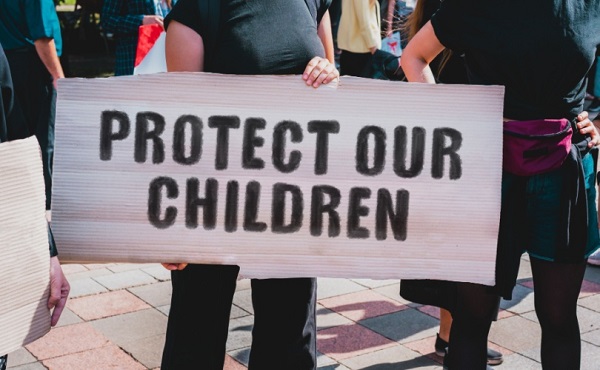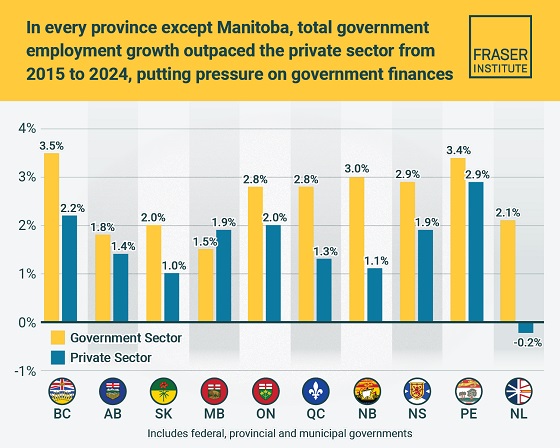Alberta
Hinshaw challenged over violating Charter freedoms of Albertans

Originally published on October 29, 2020 by The Justice Centre for Constitutional Freedoms
CALGARY: The Justice Centre today responded to new violations of the Charter-protected freedoms of association and peaceful assembly, announced earlier this week by Dr. Deena Hinshaw, Alberta’s Chief Medical Officer.
On October 26, Dr. Hinshaw declared that Albertans in Calgary and Edmonton cannot gather in groups larger than 15 for dinner parties, birthday parties, wedding and funeral receptions, retirement parties, baby showers and other social events.
“This Order violates freedom of association and freedom of peaceful assembly, as protected by the Canadian Charter of Rights and Freedoms,” stated lawyer John Carpay, president of the Justice Centre.
“This Order is based on ‘cases’ of COVID-19 in Alberta, including thousands of ‘cases’ among people who are not experiencing any symptoms or illness. This Order is not properly grounded in relevant considerations such as deaths, hospitalizations, and ICU capacity, and is therefore not a justifiable violation of fundamental Charter freedoms,” continued Carpay.
Prior to lockdowns being imposed this past March, the word “cases” typically referred to people who are actually sick and clearly displaying symptoms. But today’s “cases” include completely healthy people who simply had a positive PCR test. The reliability of the PCR tests is increasingly in dispute, with the number of false positives as high as 90% according to some reports.
Unsurprisingly, the number of “cases” rises with the number of tests that governments conduct. For example, September saw 28,763 “cases” in Canada, as a result of testing almost two million Canadians.
“What really matters is not the ‘cases’ of perfectly healthy people, but rather the fact that 25,000 Canadians die each month,” explained Carpay. “In September, 171 of those 25,000 Canadian deaths were attributed to COVID-19.”
The media continues to hype “cases” and warn of a “second wave.” Yet government data
shows that since May, monthly COVID-19 deaths in Alberta have remained under 50, with more than 2,000 Albertans dying each and every month of other causes, based on 27,000 Albertans dying each year. Deaths peaked in April and May, when 134 Albertans died along with about 4,000 Albertans who died in those same two months from other causes.
In Alberta and elsewhere, COVID-19 significantly threatens elderly people with one, two, three or more serious pre-existing health conditions, as well as a very small number of adults under 60. However, COVID-19 does not have a significant impact on overall life expectancy. The average age of those reported as COVID deaths in Alberta is 83. Life expectancy in Alberta is 82. To date, 309 Albertans, predominantly elderly near the final stages of their life, have died of COVID-19, almost all of them with one or more serious comorbidities.
“Government data shows that COVID-19 is not the unusually deadly killer that Premier Kenney and Dr. Hinshaw made it out to be when they claimed in April that—even with lockdown measures in place—as many as 32,000 Albertans would die of the virus,” stated Carpay.
“Politicians claim that the lockdowns saved many lives, but they have yet to put forward actual evidence that might support their speculation and conjecture,” stated Carpay.
“Each of Alberta’s 309 COVID-19 deaths is sad and tragic, and so are the other 26,917 deaths that occur in Alberta each year,” continued Carpay.
Each and every month, Albertans mourn the passing of over 2,000 friends and family members, who die of cancer, car accidents, alcoholism, drug overdoses, suicide, heart disease, delayed surgeries, and many other causes. In the past seven months more than 14,000 Albertans have died, 309 of the virus and the remainder of other causes.
Since March, lockdown harms such as increase in drug overdoses, which kill more Albertans than COVID-19 does, have been either ignored or accepted, as if dying of COVID-19 is somehow worse than dying of another cause.
“In light of the Alberta government’s own data on COVID-19 deaths, there is no rational basis for forcing all Albertans to continue living in fear,” stated Carpay.
“Alberta’s politicians and health officials should focus their attention on protecting those who are at serious risk from COVID-19, rather than violating the Charter freedoms of the entire population,” stated Carpay.
“Albertans, and all Canadians, should exercise their freedom of association and freedom of peaceful assembly without fear of prosecution or penalty. This is especially true for the young, who are at more risk of being struck by lightning than dying of COVID,” concluded Carpay.
Source: https://www.jccf.ca
Alberta
New pipeline from Alberta would benefit all Canadians—despite claims from B.C. premier

From the Fraser Institute
The pending Memorandum of Understanding between the Carney government and the Alberta governments will reportedly support a new oil pipeline from Alberta’s oilsands to British Columbia’s tidewater. But B.C. Premier David Eby continues his increasingly strident—and factually challenged—opposition to the whole idea.
Eby’s arguments against a new pipeline are simply illogical and technically incorrect.
First, he argues that any pipeline would pose unmitigated risks to B.C.’s coastal environment, but this is wrong for several reasons. The history of oil transport off of Canada’s coasts is one of incredible safety, whether of Canadian or foreign origin, long predating federal Bill C-48’s tanker ban. New pipelines and additional transport of oil from (and along) B.C. coastal waters is likely very low environmental risk. In the meantime, a regular stream of oil tankers and large fuel-capacity ships have been cruising up and down the B.C. coast between Alaska and U.S. west coast ports for decades with great safety records.
Next, Eby argues that B.C.’s First Nations people oppose any such pipeline and will torpedo energy projects in B.C. But in reality, based on the history of the recently completed Trans Mountain Expansion (TMX) pipeline, First Nations opposition is quite contingent. The TMX project had signed 43 mutual benefit/participation agreements with Indigenous groups along its route by 2018, 33 of which were in B.C. As of March 2023, the project had signed agreements with 81 out of 129 Indigenous community groups along the route worth $657 million, and the project had resulted in more than $4.8 billion in contracts with Indigenous businesses.
Back in 2019, another proposed energy project garnered serious interest among First Nations groups. The First Nations-proposed Eagle Spirit Energy Corridor, aimed to connect Alberta’s oilpatch to a port in Kitimat, B.C. (and ultimately overseas markets) had the buy-in of 35 First Nations groups along the proposed corridor, with equity-sharing agreements floated with 400 others. Energy Spirit, unfortunately, died in regulatory strangulation in the Trudeau government’s revised environmental assessment process, and with the passage of the B.C. tanker ban.
Premier Eby is perfectly free to opine and oppose the very thought of oil pipelines crossing B.C. But the Supreme Court of Canada has already ruled in a case about the TMX pipeline that B.C. does not have the authority to block infrastructure of national importance such as pipelines.
And it’s unreasonable and corrosive to public policy in Canada for leading government figures to adopt positions on important elements of public policy that are simply false, in blatant contradiction to recorded history and fact. Fact—if the energy industry is allowed to move oil reserves to markets other than the United States, this would be in the economic interest of all Canadians including those in B.C.
It must be repeated. Premier Eby’s objections to another Alberta pipeline are rooted in fallacy, not fact, and should be discounted by the federal government as it plans an agreement that would enable a project of national importance.
Alberta
Premier Danielle Smith says attacks on Alberta’s pro-family laws ‘show we’ve succeeded in a lot of ways’

From LifeSiteNews
Recent legislation to dial back ‘woke progressivism’ is intended to protect the rights of parents and children despite opposition from the left.
Alberta Premier Danielle Smith took a shot at “woke progressivism” and detractors of her recent pro-family laws, noting that because wokeness went “too far,” the “dial” has turned in favor of parental rights and “no one” wants their “kid to transition behind their back.”
“We know that things went a little bit too far with woke progressivism on so many fronts and we’re trying to get back to the center, trying to get them back to the middle,” Smith said in a recent video message posted on the ruling United Conservative Party’s (UCP) official X account.
Smith, who has been battling the leftist opposition New Democratic Party (NDP) attacks on her recent pro-family legislation, noted how “we’ve succeeded in a lot of ways.”
“I think we have moved the dial on protecting children and the right of girls and women to participate in sports without having to face born male athletes,” mentioning that the Olympics just announced gender-confused athletes are not allowed to compete in male or female categories.
“I think we’re moving the dial on parental rights to make sure that they know what’s going on with their kids. No one wants their kid to be transitioned behind their back and not know. I mean, it doesn’t matter what your background is, you want to know what’s going on with your child.”
Smith also highlighted how conservatives have “changed the entire energy conversation in the country, we now have we now have more than 70 percent of Canadians saying they believe we should build pipelines, and that we should be an energy superpower.’
As reported by LifeSiteNews, Smith recently said her government will use a rare constitutional tool, the notwithstanding clause, to ensure three bills passed this year – a ban on transgender surgery for minors, stopping men from competing in women’s sports, and protecting kids from extreme aspects of the LGBT agenda – remain law after legal attacks from extremist activists.
Bill 26 was passed in December 2024, amending the Health Act to “prohibit regulated health professionals from performing sex reassignment surgeries on minors.”
Last year, Smith’s government also passed Bill 27, a law banning schools from hiding a child’s pronoun changes at school that will help protect kids from the extreme aspects of the LGBT agenda.
Bill 27 will also empower the education minister to, in effect, stop the spread of extreme forms of pro-LGBT ideology or anything else allowed to be taught in schools via third parties.
Bill 29, which became law last December, bans gender-confused men from competing in women’s sports, the first legislation of its kind in Canada. The law applies to all school boards, universities, and provincial sports organizations.
Alberta’s notwithstanding clause is like all other provinces’ clauses and was a condition Alberta agreed to before it signed onto the nation’s 1982 constitution.
-

 Alberta2 days ago
Alberta2 days agoRed Deer’s Jason Stephan calls for citizen-led referendum on late-term abortion ban in Alberta
-

 espionage2 days ago
espionage2 days agoSoros family has been working with State Department for 50 years, WikiLeaks shows
-

 Indigenous2 days ago
Indigenous2 days agoIndigenous activist wins landmark court ruling for financial transparency
-

 Aristotle Foundation2 days ago
Aristotle Foundation2 days agoWe’re all “settlers”
-

 Artificial Intelligence18 hours ago
Artificial Intelligence18 hours agoGoogle denies scanning users’ email and attachments with its AI software
-

 Business1 day ago
Business1 day agoIs affirming existing, approved projects truly the best we can do in Canada?
-

 Alberta18 hours ago
Alberta18 hours agoPremier Danielle Smith says attacks on Alberta’s pro-family laws ‘show we’ve succeeded in a lot of ways’
-

 Business1 day ago
Business1 day agoTaxpayers paying wages and benefits for 30% of all jobs created over the last 10 years






